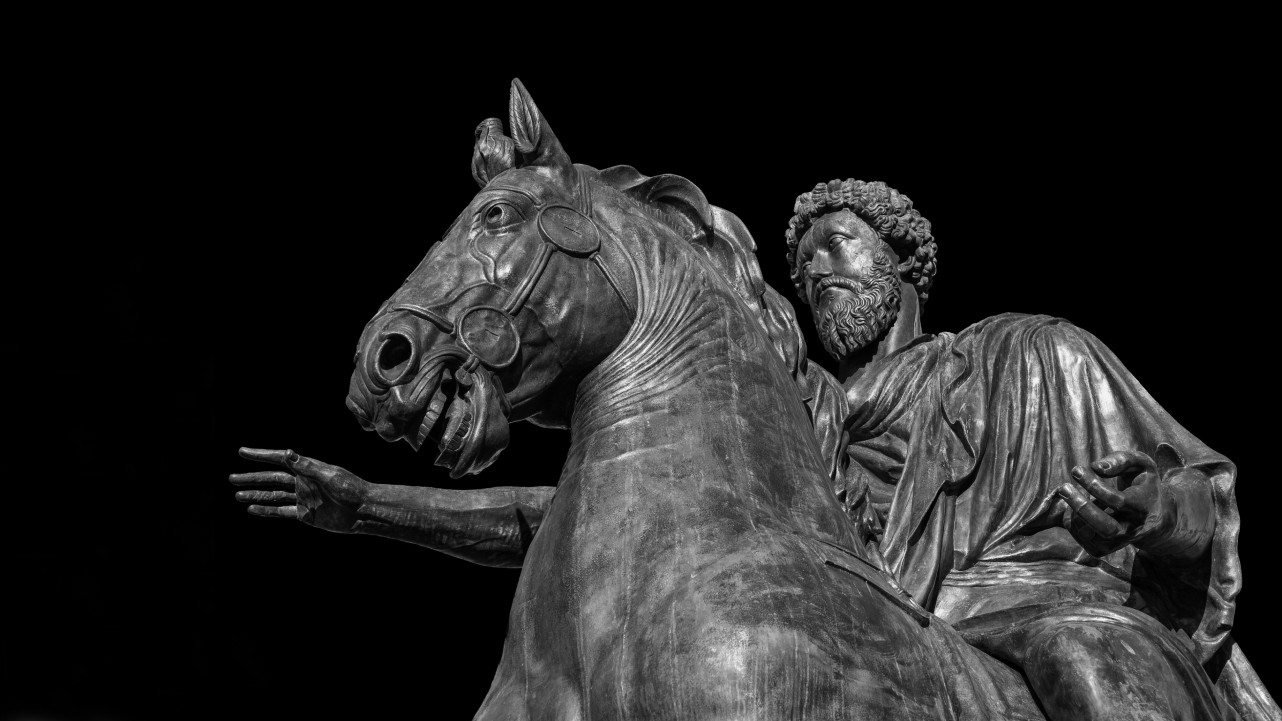Where do your beliefs come from? There’s a school of thought that sees religion as a mind virus that wastes the time and effort of human beings, but evolutionary biologist Bret Weinstein offers a more reasonable explanation: “belief systems have flourished because they have facilitated the interests of the creatures involved,” he says. Religious people are evolutionarily fitter than non-believers, not because they are protected by a deity but rather because religion is a form of adaptive evolution. Religion is so widespread because it has massive survival advantages beneath the supernatural elements—that’s what Weinstein refers to as “literally false and metaphorically true”. For example, believing in heaven is literally false—there is no such place—but believing in it keeps your descendants in good standing in the religious community after you’re gone, thus setting your lineage up to continue. The thought itself may be untrue, but the result of the thought is evolutionarily effective. “Despite the fact that human beings think that they have escaped the evolutionary paradigm, they’ve done nothing of the kind, and so we should expect the belief systems that people hold to mirror the evolutionary interests that people have,” Weinstein says. For more from Bret Weinstein, visit bretweinstein.net.
Bret Weinstein: We have minds that are programmed by culture that can be completely at odds with our genomes. And it leads to misunderstandings of evolution, like the idea that religious belief is a mind virus, that effectively these beliefs structures are parasitizing human beings and they are wasting the time and effort that those human beings are spending on that endeavor rather than the more reasonable interpretation, which is that these belief systems have flourished because they have facilitated the interests of the creatures involved.
Our belief systems are built around evolutionary success and they certainly contain human benevolence, which is appropriate to phases of history when there is abundance and people can afford to be good to each other. The problem is if you have grown up in a period in which abundance has been the standard state you don’t anticipate the way people change in the face of austerity. And so what we are currently seeing is messages that we have all agreed are unacceptable reemerging because the signals that we have reached the end of the boom times, those signals are everywhere, and so people are triggered to move into a phase that they don’t even know that they have.
Despite the fact that human beings think that they have escaped the evolutionary paradigm they’ve done nothing of the kind, and so we should expect the belief systems that people hold to mirror the evolutionary interests that people have rather than to match our best instincts—when we are capable of being good to each other because there’s abundance, we have those instincts and so it’s not incorrect to say that human beings are capable of being marvelous creatures and being quite ethical.
Now I would argue there’s a simple way of reconciling the correct understanding that religious belief often describes truths that, in many cases, fly in the face of what we can understand scientifically, with the idea that these beliefs are adaptive. I call it the state of being literally false and metaphorically true. A belief is literally false and metaphorically true if it is not factual but if behaving as if it were factual results in an enhancement of one’s fitness. To take an example, if one behaves in let’s say the Christian tradition in such a way as to gain access to heaven one will not actually find themselves at the pearly gates being welcomed in, but one does tend to place their descendants in a good position with respect to the community that those descendants continue to live in. So if we were to think evolutionarily, the person who is behaving so as to get into heaven has genetic interests. Those genetic interests are represented in the narrow sense by their immediate descendants and close relatives, in the larger sense they may be represented by the entire population of people from whom that individual came, and by acting so as to get into heaven, the fitness of that person, the number of copies of those genes that continue to flourish in the aftermath of that person’s death will go up. So the belief in heaven is literally false—there is no such place—but it is metaphorically true in the sense that it results in an increase in fitness.





